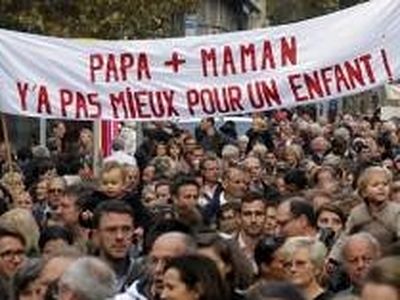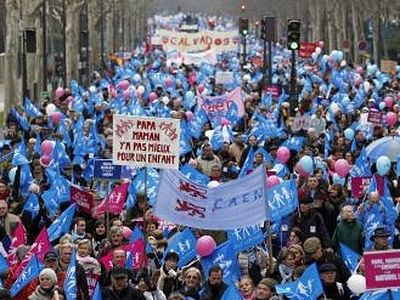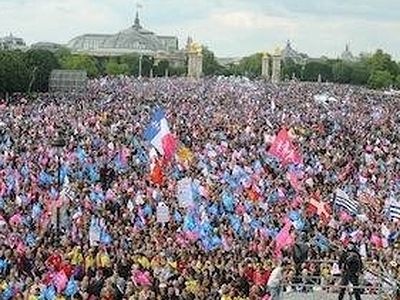Strasbourg, March 11, 2014

This time 14 mayors of French towns, who are protesting against same-sex unions, have appealed to the European Court of Human Rights with the complaint of violation of their constitutional rights.
In mid-October 2014 the French Constitutional Council did not recognize the so-called conscience clause rights of those mayors, who did not wish to knit together individuals of the same sex in marriage. There is a norm in the French legislation, which enables workers of different profiles (specifically, medics and journalists) to get an indemnity payment and not to fulfill their obligations, when their leaders make them act contrary to their professional or ethical convictions.
Since France in May 2013 became the fourteenth country in the world to legalize same-sex "marriages", some of French mayors have declared their refusal, in spite of the law, to perform such "marriages". This happened, specifically, in the small town of Arcangues in the south of France (the Pyrenees-Atlantiques department, Aquitaine), where a homosexual couple was turned down and then threatened to file an action against the mayor for sexism. A penalty in France for such a violation is three years of prison and a fine of €45,000. As a result the mayor had to back down.
However, the incident did not remain unnoticed, and colleagues of the head of Arcangues decided to appeal to the Constitutional Council. They asked the judges to ascertain whether lack of mention of the conscience clause in the laws regulating their work was constitutional or not.
But the judges did not find any violation of the republic's constitution. According to them, the mayors of towns are obliged to perform marriages regardless of their own views of same-sex unions. After the French revolution in 1789, the civil institution of marriage appeared and since then marriages have been performed by law in the presence of a mayor, who guarantees neutrality of authority in the secular state.
Having received the refusal, the officials attempted to lodge a complaint to the European Court of Human Rights: 14 of them filed a class action with a complaint on violation of their "fair proceedings right". In the mayors’ view, the terms given to them by the Constitutional Council to collect evidence appeared to be "so short that they violated the principle of adversarial nature of the trial". "In breach of their own inner order, the council reduced the terms of participation in the proceeding, did not take into account special interests of the third parties, did not transfer their written evidence to the parties and, on the contrary, neither invited nor even informed them regarding the hearing, thus avoiding the necessity to react to their arguments," stressed the mayors in their joint application.
Besides, according to them, the French Constitutional Council "is not an independent juridical instance, as some of its members earlier spoke up for marriages for all and they had analyzed the law (the same-sex marriages law) before its signing (by the president). So the republic's highest judicial body twice considered the same issue and that's why it could not pass judgment for the second time, which would have contradicted to their first verdict.
"Given the fact that the municipal elections are to take place soon, this rejection of the right of conscience of mayors may lead to weeding out of those candidates who do not share the standpoint (of the present French authorities)," noted the mayors.
Legalization of same-sex "marriages" was one of the key pre-election promises of the French president Francois Hollande, who came to power in spring 2012.






